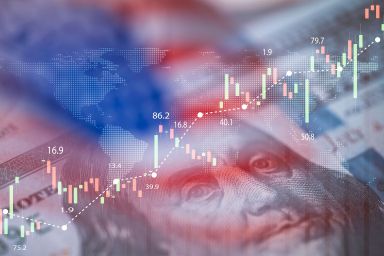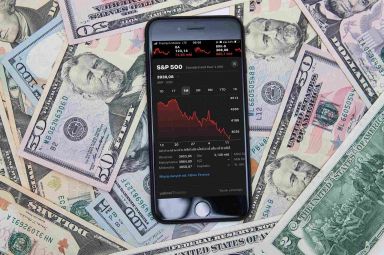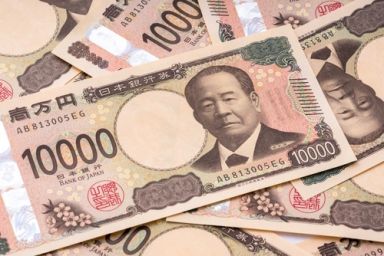Featured articles

Why Michael Burry just sold all his tech stocks
Michael Burry has just exited a nearly $100 million position on Nvidia that he opened earlier this year.
14:42, 9 October 2025

Gold forecast: Third-party price targets
Gold (XAU/USD) is currently trading at $3,982.94 (as of 6:12pm UTC, 7 October 2025), after briefly crossing $4,000 per ounce for the first time during the session.
14:43, 9 October 2025

How does Elon Musk impact cryptocurrency prices?
In cryptocurrency markets, few individuals command as much attention as Elon Musk. The CEO of Tesla and SpaceX’s tweets, Tesla and Dogecoin announcements, and public statements can trigger periods of heightened volatility, with shifts in buying and selling pressure across digital assets.
13:29, 30 September 2025

Market Weakness Broadens, But Nvidia Holds The Line
The S&P 500 fell by more than 2.7% on Friday following rising trade tensions between the US and China. This resulted in the index breaking several technical indicators during the decline, including a drop below the 20-day moving average.
an hour ago

JP Morgan Chase stock forecast: Third-party price targets
Explore JP Morgan Chase stock insights, price history, technical analysis, and client sentiment for JPM CFDs on Capital.com.
2 hours ago

Citigroup stock forecast: Third-party price targets
Explore Citigroup’s stock forecast, analyst views, price performance and client sentiment on Capital.com.
2 hours ago

Wells Fargo stock forecast: Third-party price targets
Wells Fargo (WFC) is trading at $78.99 as of 3:08pm UTC on 13 October 2025, within an intraday range of $77.33–$80.33.
3 hours ago

Market Mondays: rare earths, tariff risk and where the next moves may come from
Renewed tensions between China and the US weigh on market sentiment, with gold and silver receiving another boost
11:23, 13 October 2025

Trading the Nasdaq 100 After the Tariff Posts
Trade war is back on the menu even after cautious optimism it’ll get sorted and throws a wrench into shorter-term technicals, while sentiment shows it’s still a story of majority buy bias.
07:54, 13 October 2025

Wall St steady as ceasefire tempers risk, gold consolidates
Traders react with cautious optimism to the news of a ceasefire between Hamas and Israel as the US government shutdown continues to cloud the outlook for rates
11:16, 10 October 2025

Hong Kong 50 forecast: Is it time to invest in China?
Explore the latest Hong Kong 50 predictions from third-party analysts and technical overview, including price history and client sentiment.
10:48, 10 October 2025

Beyond Gold & Silver: Palladium’s rally faces auto headwinds
Palladium has been profiting from easier macro conditions and fundamental drivers in the auto sector but the metal remains far away from its 2022 highs
7 hours ago

Market Mondays: rare earths, tariff risk and where the next moves may come from
Renewed tensions between China and the US weigh on market sentiment, with gold and silver receiving another boost
11:23, 13 October 2025

Wall St steady as ceasefire tempers risk, gold consolidates
Traders react with cautious optimism to the news of a ceasefire between Hamas and Israel as the US government shutdown continues to cloud the outlook for rates
11:16, 10 October 2025

Gold forecast: Third-party price targets
Gold (XAU/USD) is currently trading at $3,982.94 (as of 6:12pm UTC, 7 October 2025), after briefly crossing $4,000 per ounce for the first time during the session.
14:43, 9 October 2025

Market Mondays: rare earths, tariff risk and where the next moves may come from
Renewed tensions between China and the US weigh on market sentiment, with gold and silver receiving another boost
11:23, 13 October 2025

Wall St steady as ceasefire tempers risk, gold consolidates
Traders react with cautious optimism to the news of a ceasefire between Hamas and Israel as the US government shutdown continues to cloud the outlook for rates
11:16, 10 October 2025

USD/JPY storms past 150 amid rising uncertainty
The Japanese Yen take a hard hit from the leadership change in Japan as markets expect higher fiscal spending and inflation
11:15, 8 October 2025

Trading Gold Above $4K: Fear, Foresight or Simply FOMO?
The technicals remain bullish with plenty of factors cited on the fundamental front, and traders both large and small remain very much in majority buy territory.
07:14, 8 October 2025

Why Tom Lee thinks Ethereum will rally to $16k in 2025
If you'd invested $10,000 in Ethereum 3 years ago, you'd have about $27,000 today.
17:07, 9 October 2025

Bitcoin price prediction: Third-party outlook
Bitcoin (BTC) was trading at $121,360.55 at 6:25pm UTC on 7 October 2025, down from an intraday high of $125,851.60 and just above the day’s low of $121,088.50.
15:17, 9 October 2025

Ripple price prediction: Third-party outlook
Ripple (XRP/USD) is trading at $2.86 as of 11.46am UTC on 23 September 2025, after moving within a $2.79-$2.99 intraday range.
15:31, 1 October 2025

Ethereum Price Prediction: Third-party outlook
Ethereum (ETH) was trading at $4,188.46 at 12:01pm UTC on 22 September 2025, rebounding from an intraday low of $4,153.49 but still below today’s high of $4,495.97.
15:18, 1 October 2025
